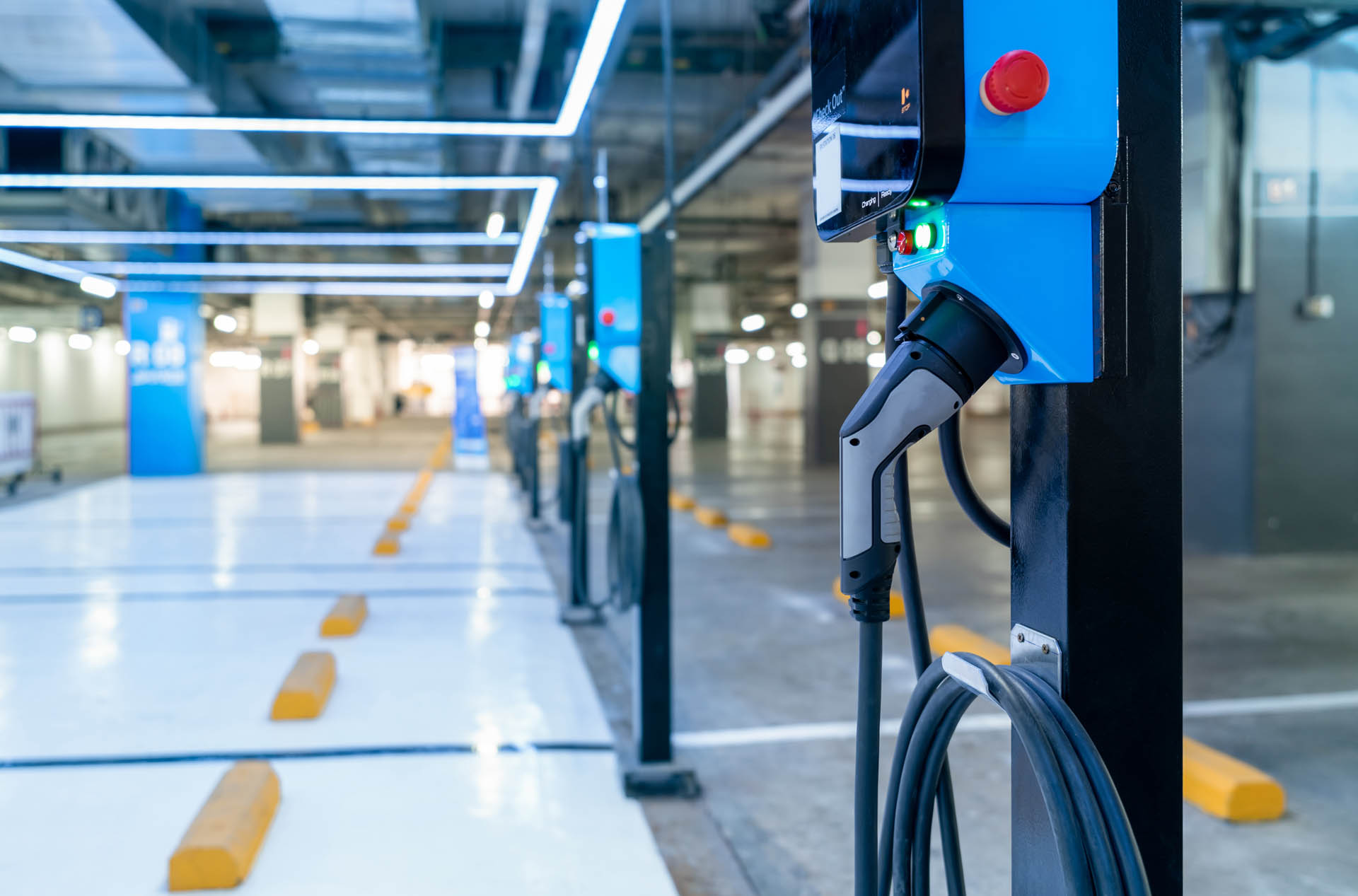Transport accounts for around a quarter of Europe’s greenhouse gas emissions, with road transport representing about three-quarters of that number. As the European Union moves to decarbonise, this should be the moment for electric vehicles (EVs). E-mobility is one of the most promising technological solutions for zero-emission road transportation. Every major carmaker has committed to roll out EVs, and the number of models available in Europe is expected to reach 330 by 2025.
Yet there are still obstacles hampering EVs, including the high prices of electric cars and the supply chain issues associated with batteries and semiconductors. One of the biggest barriers to an electric revolution is the charging infrastructure.
Based on EU estimates, if there is to be an EV revolution on European roads, then an estimated three million public charging points will be need to be installed by 2030. But with just 185,000 public charging points currently available in the EU, that is a fifteen-fold increase.
Charging points matter for buyers, especially those who are buying EVs for the first time. This is not just a new technology under the bonnet, but a whole new system that needs different supporting services. Research shows that the number one reason why consumers decide not to buy an EV is the lack of charging stations.
MOL and its partners in the NEXT-E consortium have already installed 252 EV charging stations along main highways in the Czech Republic, Slovakia, Hungary, Slovenia, Croatia and Romania. We plan to build many once market demand will rise in our countries.
But these EV infrastructure projects face challenges. For instance, it takes an average of six to eight months for construction permits to be issued before the physical installation of EV charging stations can begin.
The main obstacles to building charging stations are national regulations. In Romania, for example, the procedure can take up to one-and-a-half years because it has to be licensed by individual municipalities. In Slovakia, there is an effective barrier to the deployment of EV chargers on motorways as the Slovak motorway monitoring company reserves the right to launch applications for e-mobility services (charging installations) for already leased areas (filling stations).
These different national requirements all represent obstacles to the EU’s planned Single Market for EVs. The EU needs to intervene to clear the way for new charging infrastructure.
For example, the level of distribution power capacity tariffs (kW) to be paid is set at such a high level that it significantly impairs the rates of return and is a barrier for a new business. Peak performance should be paid by e-mobility providers on the basis of static tariffs to DSOs. The introduction of uniform dynamic power capacity tariffs for e-mobility across EU Member States would ease this problem.

Second, EU regulations treat e-charging as a product under VAT law but as a service under accounting rules. To be able to develop a roaming service, it has been necessary to integrate several systems at significant additional cost to the developer. A unified service interpretation and category would facilitate the launching of these types of services and ease billing services in the digital age.
The Energy Union is an essential new dimension of the Single Market and integral to the success of the Green Deal, delivering the targets of the Fit for 55 package for transport infrastructure and the decarbonisation of the transport sector. To ensure intensified decarbonisation and delivery of proposed targets there is a need for improved administrative procedures and smarter taxation to support the investments required to drive the green transition and reach climate neutrality by 2050.
For EVs to gain widespread acceptance, manufacturers, charging companies, industry groups and governments at all levels must work together to make public charging available in as many locations as possible. The European Commission should spearhead the coordination in order to ensure a coherent framework for faster roll-out of infrastructure across the EU Member States. EVs hold the transformative promise to profoundly alter the carbon footprint of mobility. But this will only happen if we have the right charging infrastructure in place, across national borders.
Charging points matter for buyers, especially first-time buyers. Research shows that the number one reason why consumers decide not to buy an EV is the lack of charging stations.
Different national requirements all represent obstacles to the EU’s planned Single Market for EVs. The EU needs to intervene to clear the way for new charging infrastructure.

